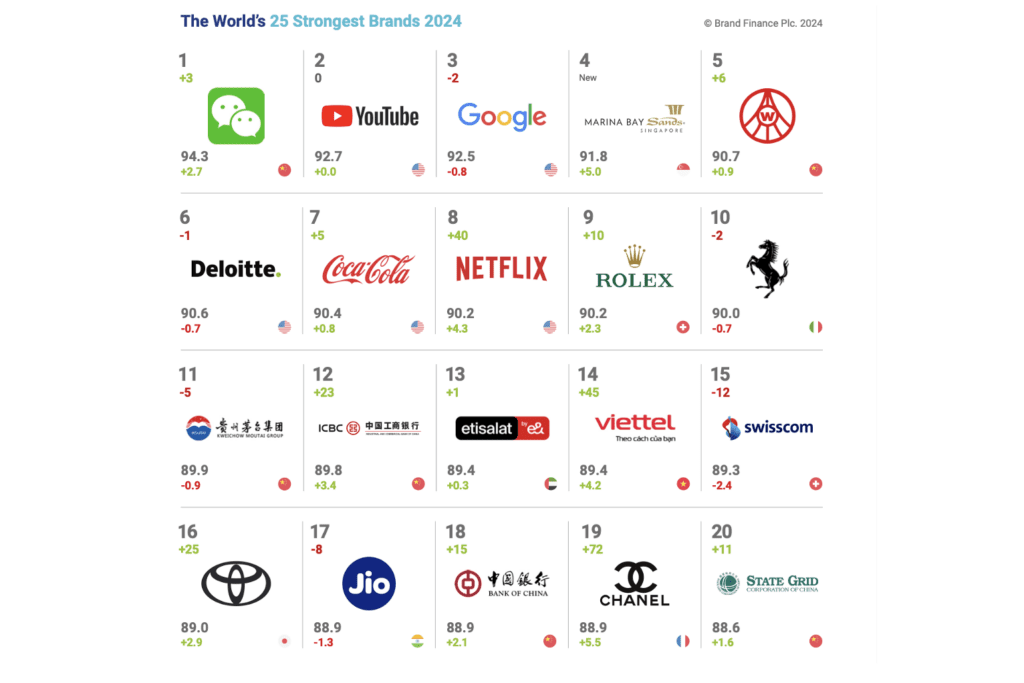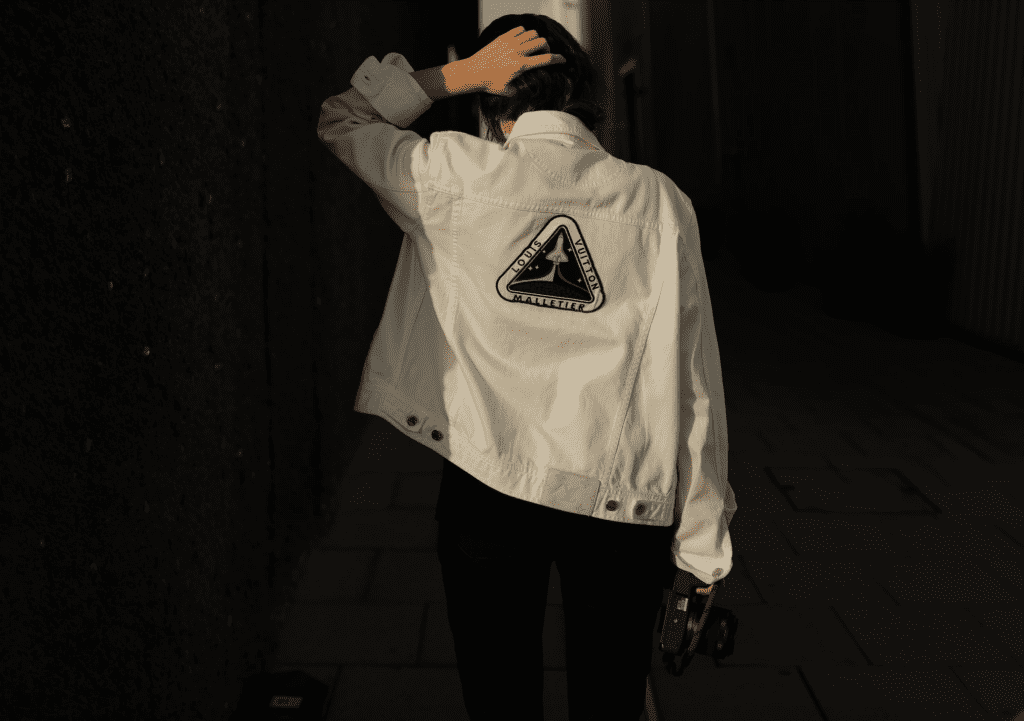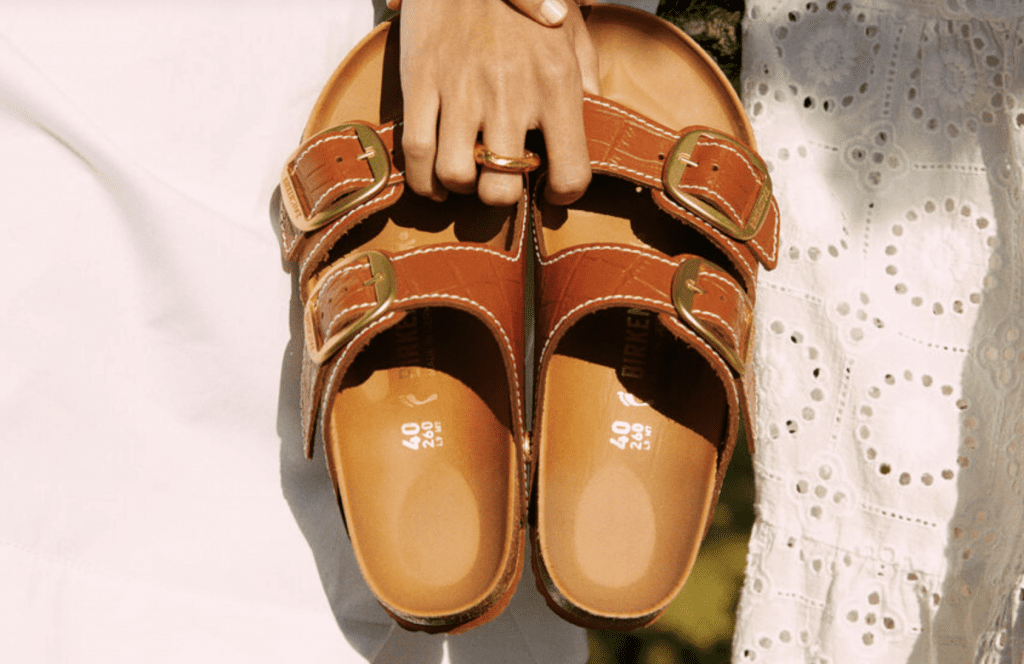Apparel and luxury companies did not break the top 50 in Brand Finance’s annual ranking of the world’s most valuable brands, with names like Apple, Microsoft, Google, Amazon, and Samsung unsurprisingly taking the top spots. According to Brand Finance, which defines brand value as “the value of the “names, terms, signs, symbols, logos, and designs” that a company uses to identify and distinguish its “goods, services or entities” from those of others, Apple has achieved “truly exceptional brand value growth [over the past] year,” with its brand value increasing by $219 billion to a cool $516.6 billion.
As for how Apple achieved such growth, Brand Finance points to “strategic diversification and premiumization, and [its] movement away from heavy reliance on iPhone sales towards ventures into wearables and services, such as Apple TV subscriptions.” On the pricing and pricing power front (i.e., its ability to raise prices without incurring a meaningful loss in market demand), Brand Finance found that more than 50 percent of respondents recognized Apple as expensive, but worth the price, which “reinforces [its] ability to demand a price premium.” Part of this power is derived from the fact that Apple is “one of the world’s most recognized brands, [as] illustrated by its high brand awareness, averaging 96 percent [awareness] across 17 countries researched by Brand Finance.” In the U.S., alone, which is Apple’s home market and its biggest in terms of revenue, the brand ranks “highest among tech brands in perceptions of product quality.”
Regarding methodology: London-based Brand Finance calculates each brand valuation, or the value of the legal rights to the income stream derived from a company’s relevant trademark assets, by estimating the future revenue attributable to a brand and calculating a royalty rate that would be charged for the use of the brand. In furtherance of this, the consultancy considers brand specific revenues based on companies’ publicly available financial information, brand strength, and royalty rate ranges for the respective brand sectors, among other things.
Apparel/luxury ranking: Aside from, which can certainly be viewed as a luxury brand in its own right, apparel/luxury brands do not find themselves among the top 50 most valuable brands on the 2024 list. The most highly ranked name in this space, Louis Vuitton, took the number 52 spot (up from 70 on the 2023 ranking) with a brand value of $32.2 billion. Nike came next in 62 (down from 54 in 2023) with a brand value of $29.9 billion, followed by Chanel, which rounds out the top 100, in 73 (down from 98 last year) with a brand value of $26.1 billion. Further down on the list, Hermès ranked at 117 (up from 140 last year), Zara took the 120 spot (up from 181), Gucci – which is in the midst of a creative revamp – came in at 129 (down from 109), Dior was at 136 (up from 147), adidas – potentially impacted by the Yeezy scandal – ranked at 141 (down from 128), Rolex at 150 (up from 191), and Cartier at 153 (up a few places from 156).
Falling within the 200 to 500 range are Uniqlo (235, up from 255), H&M (256, down from 217), LVMH-owned Tiffany & Co. (257, up from 302), Farfetch-owner Coupang (315, up from 352), Lululemon (382, up from 422), Prada (383, up from 490), and Armani (497, up from 596). Also in the mix: Ozempic-maker Novo Nordisk, which took the 470 spot all the way up from 775 last year.
Where luxury brands perform notably well is on the brand “strength” ranking. Distinct from overall brand value, brand “strength” is measured by way of more intangible/goodwill-centric factors like “marketing investment, stakeholder equity, business performance, corporate reputation,” etc. On this ranking, Rolex takes the number 9 spot (up from 10 places from last year) and Chanel lands in the number 19 position (up 72 places from 2023).

Delving into Rolex’s strength, Brand Finance states that the Swiss watch maker – which also takes the title of the strongest brands in the European region for 2024 – “has stood apart from much of the high-end watch industry by managing to maintain its strong brand reputation for consistent quality, while managing to scale up production.” (For some context, Rolex reportedly produced 1.05 million watches in 2021, up an estimated 25 percent from 2015. It is also expected to have generated $8.81 billion in revenue in 2021.)
Meanwhile, fellow luxury brand Ferrari is worth noting, as it is the second-strongest European brand, according to Brand Finance, which found an increase in both brand strength and value for the Italian automaker. Ferrari’s increases correlate with its ability to maintain its status as an “iconic brand” and its “profitability increasing substantially over the last two years with global exports of Ferrari vehicles benefiting from COVID-era redirection of luxury spending from experiences to goods.”
Sustainability as a factor: In light of an increase in “consideration, reputation, and sustainability perceptions by consumers” across the globe and as “expectations for corporate sustainability action continue to build,” Brand Finance introduced a Sustainability Perceptions Index that quantifies the value of brands’ sustainability perceptions among consumers, and the gap between those perceptions and actual performance. Based on two years of data, Brand Finance contends that there is “a varying relative importance of sustainability to customer choice across sectors,” with a “lower role for sustainability in consideration” being observed in the Airlines and Technology markets, for example, where attributes like “trustworthiness and customer service are more important.” In contrast, in sectors like Supermarkets and Apparel, there is “a more significant role for sustainability” when it comes to brands’ messaging and marketing.
Brand Finance says that its research indicates “a significantly enhanced role for sustainability in driving choice in the luxury/premium market segment,” particularly in the Auto, Apparel, and Cosmetics sectors, where “sustainability driver scores are over 1.5 times higher than for the sector as a whole.” Further, at the premium/luxury end of many markets, brands “increasingly become more than just a guarantee of attributes to the consumer, also acting as an expression of the purchaser’s status, taste, identity, or ethics to others.” This is “particularly true” in Luxury Apparel and Luxury Auto, Brand Finance observes.
And a note on AI: Finally, the rise in artificial intelligence is worth noting, with Brand Finance finding that as the AI sector booms, Microsoft has become the world’s second most valuable brand (following only behind Apple), while the brand value for NVIDIA, which rose from the 117 spot in 2023 to 70 for 2024, surged 163 percent thanks to its position as “a front-runner in the AI chip market.”
According to Brand Finance, “a key highlight of this year’s report is the strong gains of businesses that have invested heavily in AI,” with the company finding “very large increases” in brand value amongst sectoral leaders, such as Microsoft and NVIDIA, the latter of which nabbed the title of the fastest growing company in terms of brand value on the 2024 ranking.











